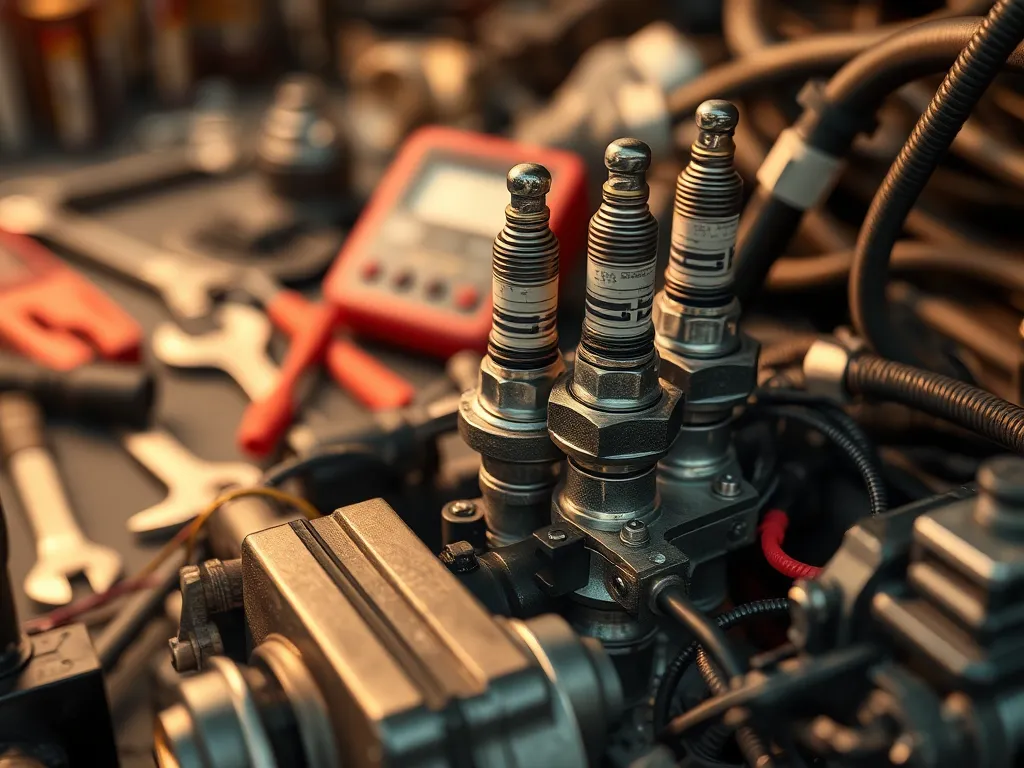10 Essential Tips on How to Repair Ignition Issues

How to Repair Ignition Issues
Ignition issues can leave you stranded, causing inconvenience and frustration. Understanding how to repair ignition issues is essential for any vehicle owner. This article will guide you through common ignition problems and how to address them effectively.
When you encounter ignition problems, knowing how to repair ignition issues can save you time and money. From identifying faulty components to making the right repairs, taking action is crucial to getting your vehicle back on the road. This guide will help you troubleshoot and fix common ignition issues with ease.
To effectively learn how to repair ignition issues, it's important to familiarize yourself with the components of the ignition system. Additionally, understanding the signs of potential failures will enable you to act swiftly before more significant damage occurs. This article is designed to provide you with insights and practical steps to handle ignition repairs confidently.
For those experiencing trouble starting their vehicle, professional ignition switch repair can be the key to a swift resolution.
Besides fixed repairs, preventive measures also play a crucial role in understanding how to repair ignition issues before they happen. Regular maintenance and checks can prolong the life of your ignition system. This comprehensive guide will not only help you troubleshoot existing problems but also give you tips for maintaining a healthy ignition system.
A faulty steering column lock can not only prevent your car from starting but also compromise safety.
In this article, we’ll delve into common ignition problems, essential tools needed for ignition repair, a step-by-step ignition repair guide, preventive maintenance tips, and indicators for when to seek professional help. By the end of this article, you’ll have a clearer understanding of how to repair ignition issues and keep your vehicle running smoothly.
Common Ignition Problems
One of the most prevalent ignition problems is ignition coil failure. The ignition coil is responsible for converting battery voltage into the high voltage needed to create a spark at the spark plug. Symptoms of a failing ignition coil include difficulty starting the engine and misfiring under load. It’s crucial to learn how to test the ignition coil for proper function to ensure optimal performance.
Drivers often overlook common car starting problems, but addressing them promptly can save significant time and money.
Another common issue is faulty spark plugs. Symptoms of a bad spark plug may include rough idling, poor acceleration, or an increase in fuel consumption. Regular inspection and replacement of spark plugs can help avoid these issues, as well as improve your car’s fuel efficiency.
Understanding starter motor issues is also essential when diagnosing ignition problems. The starter engages the engine when you attempt to start your vehicle. Signs of starter motor failure include a clicking noise when turning the key or the engine not cranking at all. Knowing how to differentiate starter problems can help isolate ignition issues more effectively.
A malfunctioning ignition switch can lead to various ignition problems, including the inability to start your car. Symptoms may involve intermittent starting issues or electrical accessories not functioning properly. Identifying and replacing a faulty ignition switch can be vital in resolving start-up troubles.
Battery-related ignition problems often stem from weak or dead batteries, corroded terminals, or loose connections. Symptoms include dimming lights or the engine not turning over. Conducting regular battery checks ensures your ignition system functions smoothly without interruptions.
Tools Needed for Ignition Repair
To repair ignition issues, having the right tools is essential. Some of the basic tools you will need include screwdrivers, pliers, wrenches, and a diagnostic scanner. A good set of tools can make the repair process faster and more efficient.
A multimeter is a crucial tool for ignition testing. It allows you to measure voltage, amperage, and resistance, enabling thorough diagnostics of ignition components. Learning how to use a multimeter can significantly enhance your ability to identify ignition issues accurately.
Consider investing in recommended repair kits specifically designed for ignition systems. These kits often come with essential components, connectors, and tools that can aid in efficient repairs and replacements.
Choosing the right spark plug wrench is critical for correctly removing and installing spark plugs without causing damage. Spark plug wrenches come in various sizes, and selecting one that fits your vehicle's specifications is important for a proper fit.
Don't forget the importance of safety equipment while performing ignition repairs. Safety glasses, gloves, and fire-resistant gear can protect you while you work, especially if you're dealing with electrical components or fuel-related tasks.
Step-by-Step Ignition Repair Guide
To begin the repair process, you should first inspect the ignition system. Look for visible signs of wear, corrosion, or damage. Check connections and components like the ignition coil and spark plugs to determine which parts may need attention.
Replacing faulty ignition components is crucial for restoring functionality. Follow manufacturer guidelines for removing and installing new parts, ensuring all connections are secure and components are seated correctly.
Testing ignition timing is another essential step in the repair process. Proper ignition timing is vital for engine performance. Utilize timing lights and follow specific timing procedures for your vehicle to ensure accuracy.
Making wiring checks for ignition systems can reveal hidden issues. Inspect wiring connections for wear, and repair or replace damaged wires as needed to ensure a reliable electrical flow.
After completing repairs, it's important to make final adjustments. This might include resetting error codes, rechecking timing, and running the vehicle to ensure that all ignition issues have been resolved effectively.
Preventive Maintenance for Ignition Systems
Regular checks on ignition components can prevent many issues from arising. Schedule inspections and maintenance for your ignition system at consistent intervals to keep your vehicle in optimal condition.
Best practices for battery maintenance include cleaning terminals, ensuring tight connections, and testing battery health regularly. A well-maintained battery is key to preventing ignition problems.
To extend the life of spark plugs, consider using high-quality plugs and adhering to replacement intervals based on your vehicle’s specifications. Keep spark plugs clean to ensure efficient performance.
Identifying wear and tear in ignition systems can often save you from major repairs. Regularly inspect components for signs of degradation and replace them promptly to avoid strain on other parts of the ignition system.
Seasonal maintenance tips for ignition upkeep can involve checking battery health before winter and inspecting wiring for damage caused by environmental conditions. Staying ahead of potential issues can help you avoid ignition failures altogether.
Professional Help: When to Call an Expert
Recognizing complex ignition problems can be challenging, but some issues may require the experience of a professional mechanic. If you find yourself dealing with unusual symptoms, don’t hesitate to seek help to avoid further damage.
There are numerous benefits of professional diagnosis, including access to advanced diagnostic tools and experienced technicians who can quickly identify and resolve issues that may be outside your expertise.
Cost is always a consideration when seeking professional ignition repair. Prices can vary depending on the complexity of the repairs needed, so inquire about estimates before proceeding with services.
Finding a qualified mechanic for ignition issues is essential. Look for certifications and reviews from other customers to ensure you’re choosing someone with the right experience and skills to handle ignition systems.
When you consult a mechanic, ask specific questions about the diagnosis and repairs needed. Inquire about warranties, part quality, and their experience with similar ignition issues to ensure you’re receiving the best service possible.
